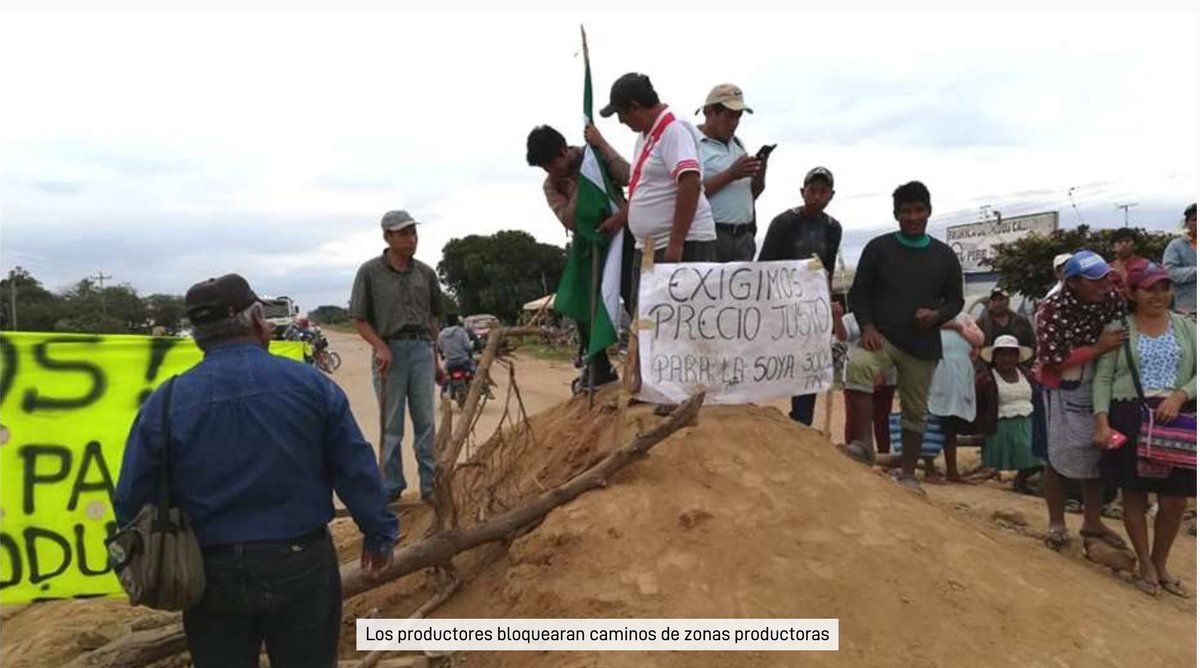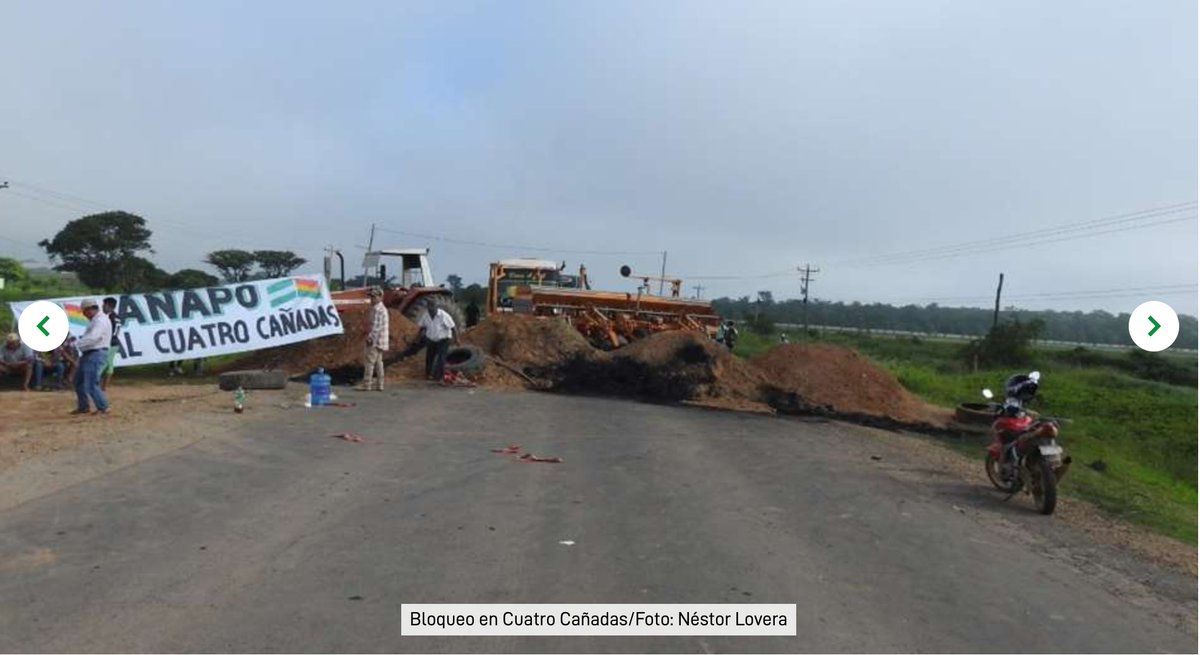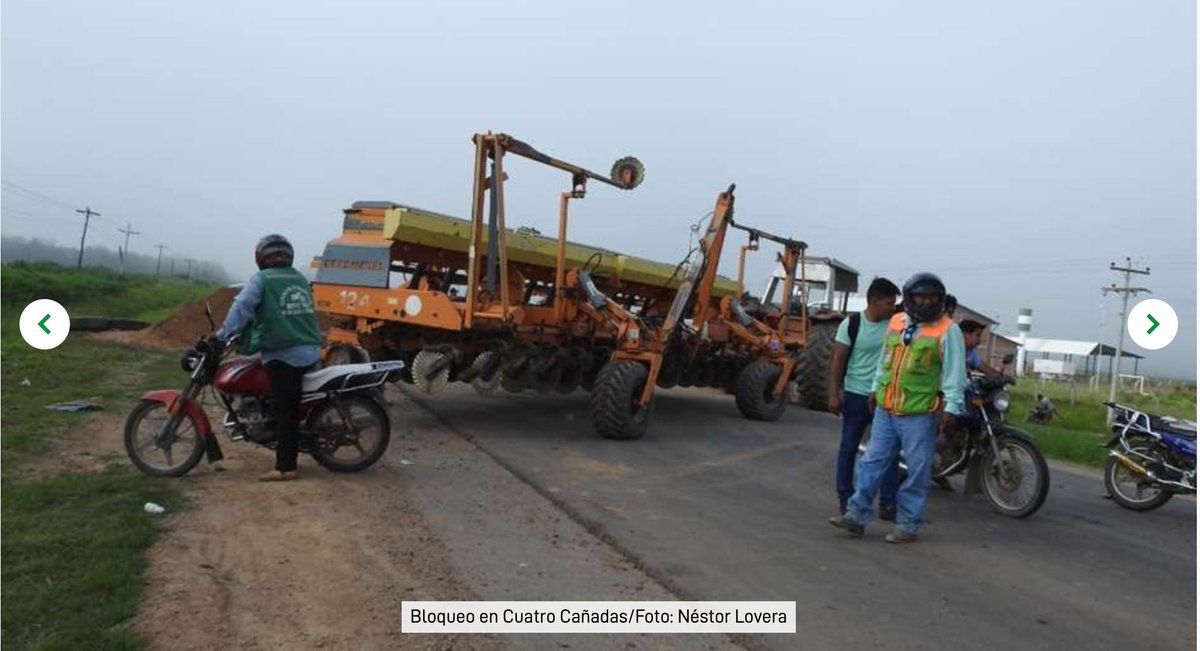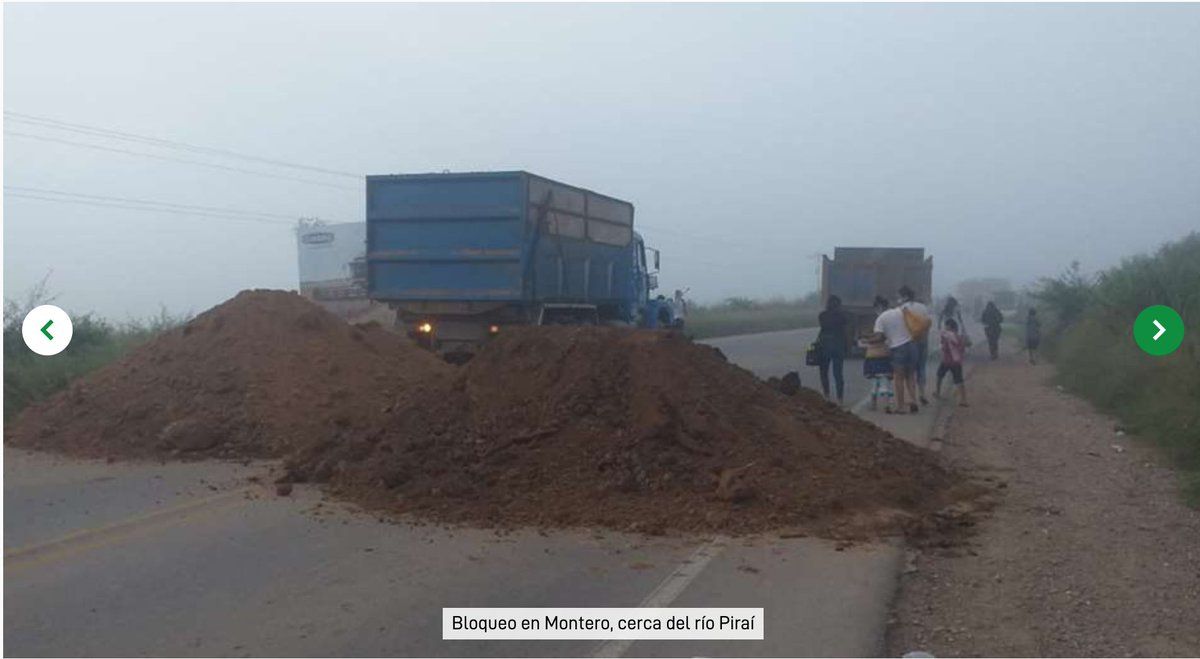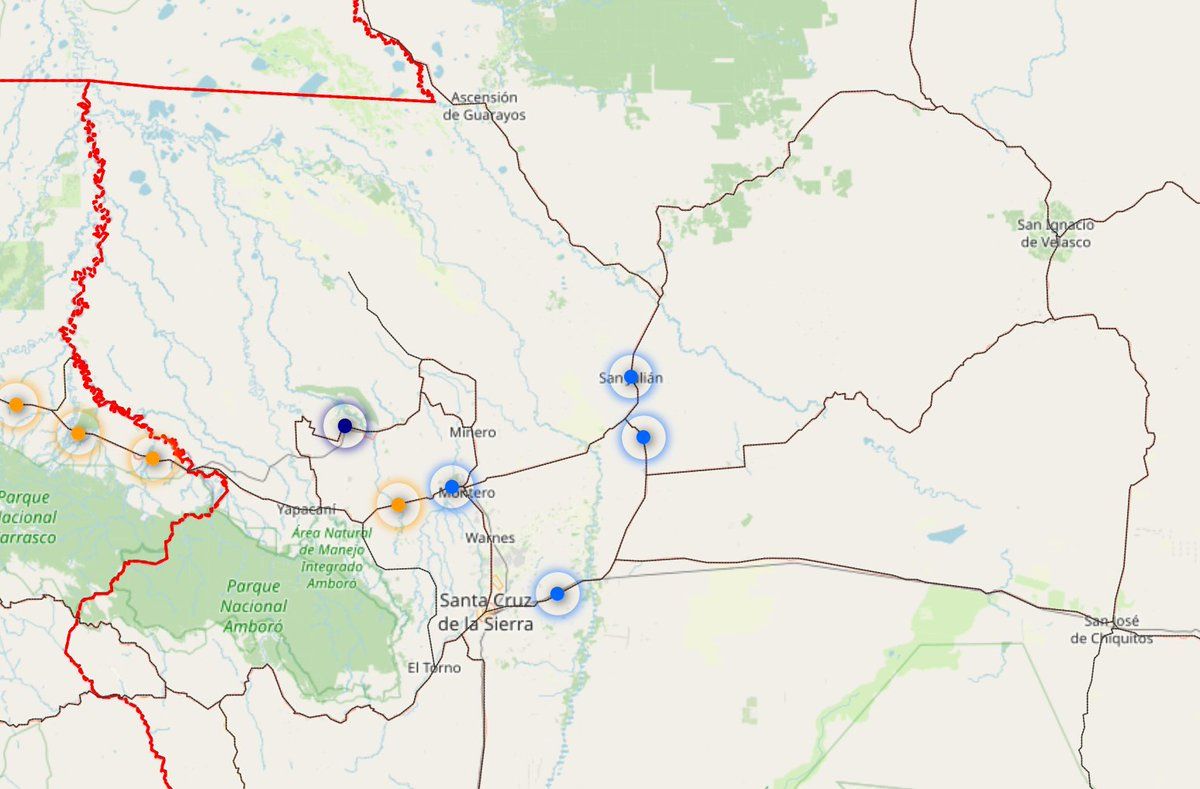-
Bolivia's soy producers are carrying out a seven-point road blockade campaign to demand an end to price controls on their products used for animal feed. eldeber.com.bo/economia/con-siete-puntos-de-bloqueo-de-vias-soyeros-rechazan-banda-de-precios_221665
-
The sponsors of the road blockades are the elite soy producer's association, ANAPO. Other agricultural, cattle producing orgs are taking sides along class lines: Marbán and Pailón ranchers back ANAPO. Small agriculturalists ODEPAO support dialogue w/ government.
-
Soy production represents the largest share of Bolivian agriculture: 1,050,000 hectares cultivated in 2019-2020, 35 to 38% of all cropland in the country. notiboliviarural.com/agricola/anapo-estima-superficie-de-1-050-000-hectareas-de-soya-en-el-verano-2019-2020
-
There are two sets of figures for agricultural cultivation in Bolivia, fwiw, perhaps due to not all farmlands being under constant cultivation. Larger governmental numbers put soy at 1.324M Ha in 2015, still ~35% of the 3.729M Ha of total cropland. ruralytierras.gob.bo/leyes/plansectorial.pdf
-
Soy flour and other soy products are also a vital animal feed. Producers want these prices to float w/ rising global prices, but the Arce government wants to control prices for domestic meat production.
-
The Áñez government had ended price controls by decree, but Arce's socialist government is committed to them. clarin.com/agencias/efe-gobierno-boliviano-ratifica-control-precios-rechazado-agro_0_uxC6GVbOD9.html
-
Earlier this month, producers conducted a 1,000-machine "tractorazo" displaying their ability to mobilize their costly means of production in support of their demands. lostiempos.com/actualidad/economia/20210212/tractorazo-productores-soya-rechazan-bandas-precios
-
Price controls would only apply to ~20% of soy production destined for the domestic food supply, as part of the national government's food sovereignty policy. Export prices would float freely. lostiempos.com/actualidad/economia/20201215/gobierno-afirma-que-80-soya-queda-libre-su-exportacion
